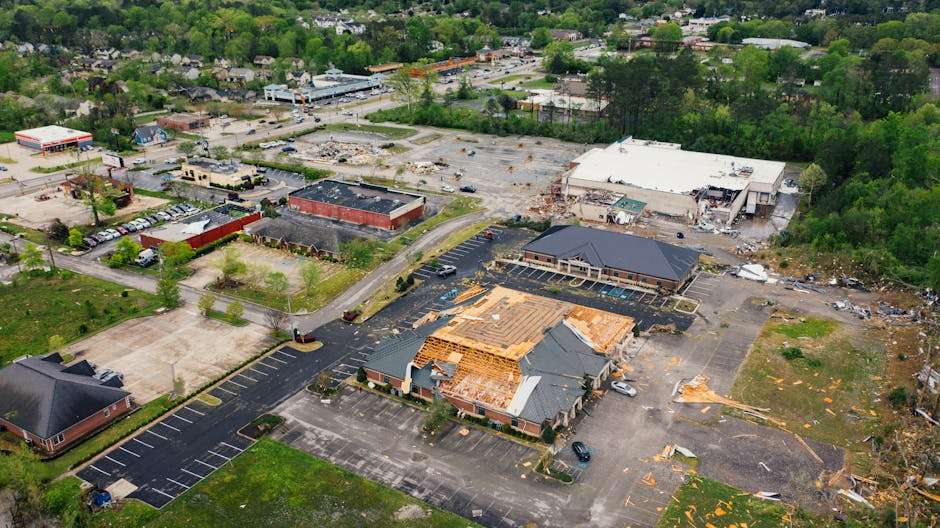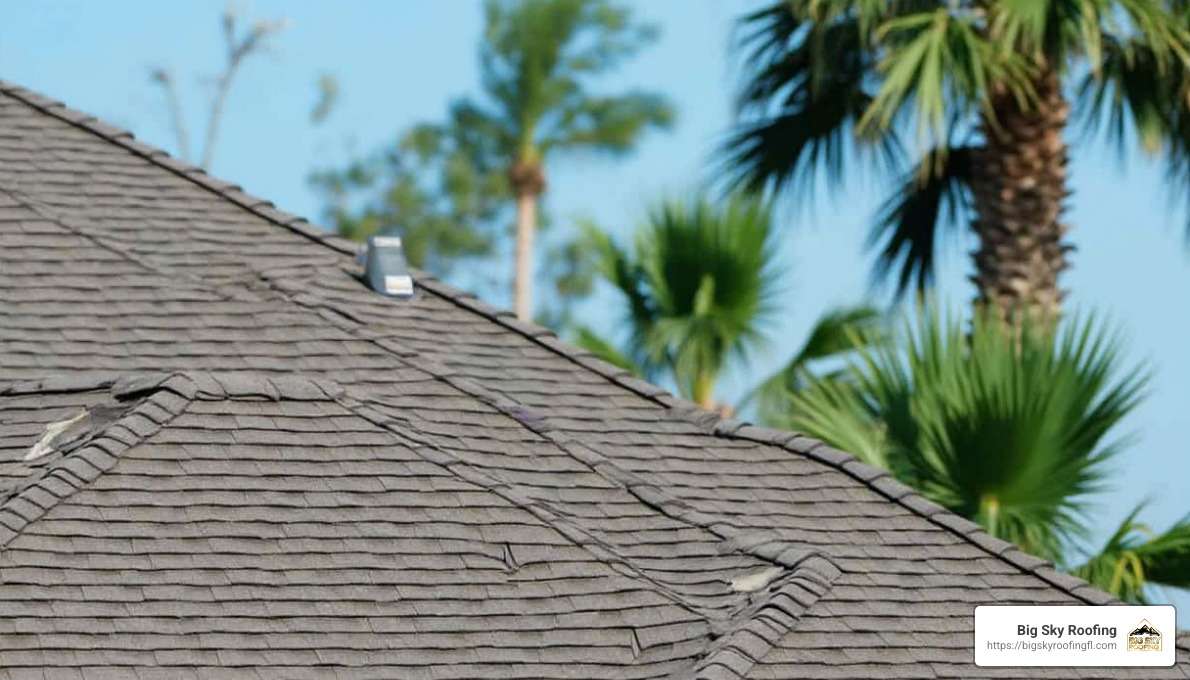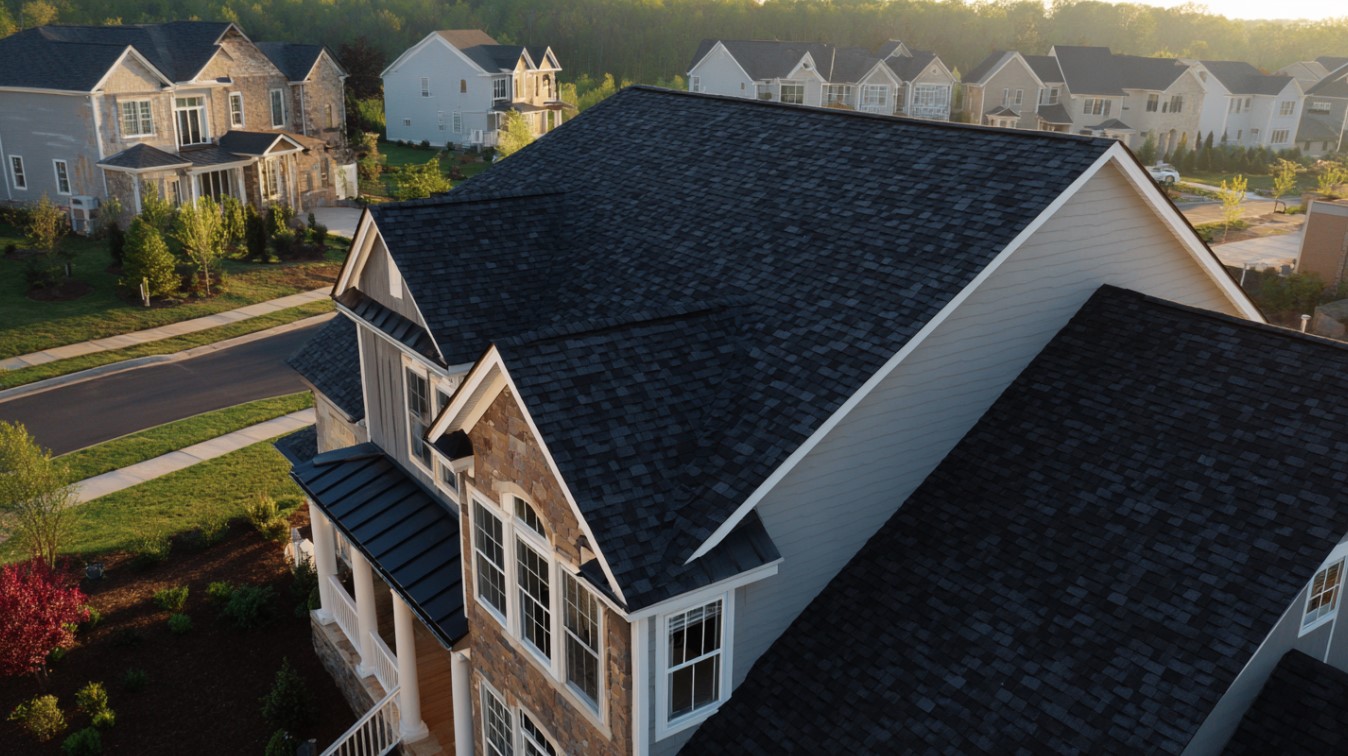Choosing a Roofing Contractor? Essential Questions for 2025
•
Written By
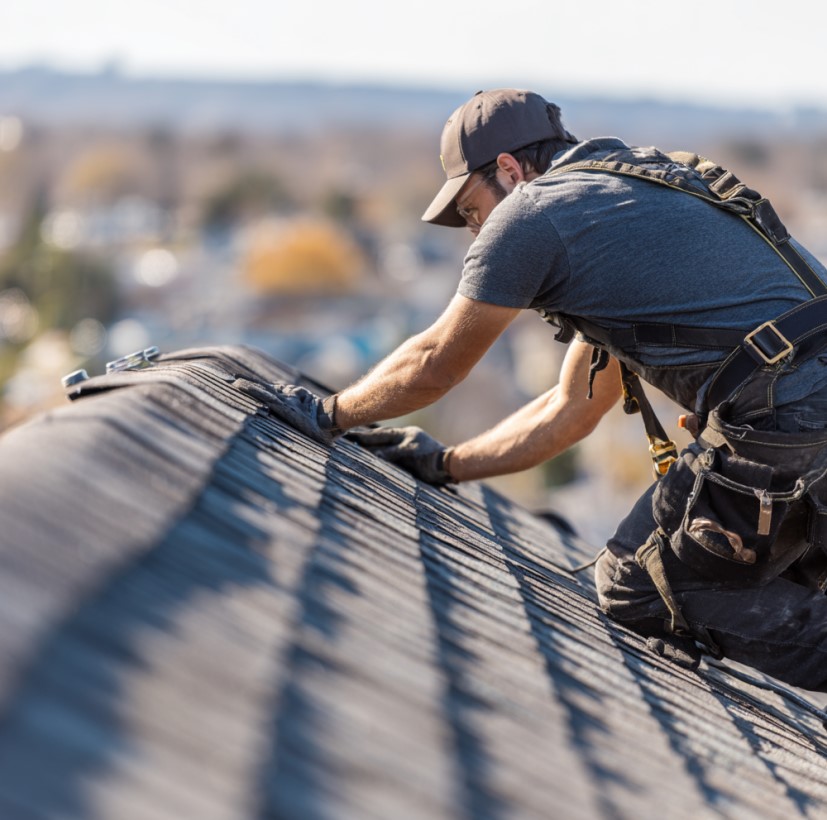
Hiring the Right Roofing Contractor in 2025: Crucial Questions to Ask
In today’s competitive market, securing the best roofing contractor for your next project is essential to ensuring the long-term integrity and aesthetic appeal of your property. Homeowners and property managers alike must navigate a myriad of offerings from local roofing companies to national firms such as abc roofing and elite roofing, all while considering factors like liability insurance, workmanship warranties, and overall reputation. With the evolving building codes of 2025, roofing projects have become increasingly technical, emphasizing the importance of selecting contractors who not only offer quality roofing services but also demonstrate a comprehensive understanding of modern home improvement requirements—including building insulation, roof replacement, and waterproofing.
A prudent decision begins with a thorough assessment of a contractor’s credentials. This entails verifying that they possess the correct licenses, insurance policies, and necessary certifications. A seasoned contractor will have all the paperwork updated and readily available, as these documents protect both the client and the contractor from future disputes. In addition, a reliable roofing contractor provides detailed project scopes, cost estimates, and references to instill confidence in their potential clients. Given the current focus on sustainable and energy-efficient building practices, many contractors are now also conversant with green building practices and metal roof installations, enhancing a building’s durability and energy efficiency.
With rising new roof cost Clermont prices and the increasing complexity of roofing materials and designs, questions regarding installation techniques, material durability, and post-project clean-up are more pertinent than ever. The following article lays out several critical questions to ask your potential roofing contractor under key categories ranging from their credentials and insurance to their communication practices and safety protocols. This comprehensive evaluation will help ensure that your roofing project is executed efficiently, safely, and to the highest possible standard.
Transitioning into the detailed inquiries, let’s explore the essential areas you should address before hiring a roofing contractor for your 2025 project.
Verifying Your Potential Roofing Contractor’s Credentials and Insurance for 2025 Projects
Ensuring that your roofing contractor is properly credentialed and insured is the first and most critical step to mitigate risk in any roofing project. The security of a roofing project is heavily reliant on the contractor’s credentials, including their state-issued license, general liability insurance, and workers’ compensation policies. A contractor with a valid license demonstrates adherence to local building codes and regulations—a factor that assures you of their technical proficiency and commitment to legal standards. In a regulated industry like roofing, lacking proper credentials can expose homeowners to faulty workmanship and potential legal issues later on.
It is crucial to ask if the roofing company is fully licensed to operate in your locality for 2025. A proper local license is not only a governmental requirement but also a mark of professionalism that indicates the contractor’s familiarity with regional building practices. In addition to licensing, the contractor must provide current certificates of general liability and workers’ compensation insurance. These documents safeguard you from potential financial liabilities if an accident occurs on your property during the roofing project. Verifying that the contractor holds these insurances gives you peace of mind, particularly in emergencies such as hail-induced accidents or on-site injuries.
Furthermore, reputable roofing companies often possess additional industry certifications or manufacturer approvals. These certifications indicate that the contractor is trained in working with specific roofing materials—be it asphalt shingles, metal roofs, or environmentally friendly cool-roof technologies. For instance, a roofing contractor approved by certain manufacturers is more likely to offer extended warranties and post-installation support, ensuring that any issues with materials are promptly addressed. In addition, many contractors also have a permanent business address along with transparent contact information, which further reinforces their credibility and stability in the competitive roofing market.
When evaluating a contractor’s credentials, requesting copies of all relevant documents and certificates is advisable. Not only does this verify that the contractor is legitimate, but it also shows that they are organized and professional—traits that tend to translate into the quality of the roofing project. Additionally, a contractor with a longstanding reputation for reliability will typically have a portfolio of completed projects and client testimonials that can serve as valuable references for potential customers.
By thoroughly assessing these credentials and insurance details, homeowners can reduce risks, ensure compliance with local regulations, and increase the chance that their roofing project will be completed successfully, on time, and within budget. With these considerations in mind, the next step is evaluating the contractor’s experience and local standing.
Assessing a Roofing Contractor‘s Experience and Local Standing
Understanding a roofing contractor’s background and how well-established they are in the region serves as a crucial predictor of project success. The longevity of a contractor’s business in your specific region signals their familiarity with local building codes, climate challenges, and community standards. For example, a contractor that has been operational in your area for an extended period demonstrates a sustainable business model and has likely encountered a range of roofing scenarios—from commercial installations affected by severe weather to residential projects that require precise architectural aesthetics.
A well-experienced contractor should be ready to supply a list of recent client references along with examples of completed roofing work. These references can be invaluable in assessing the quality and durability of past projects. Real photographs, timelines, and documented case studies can illuminate aspects of the contractor‘s workmanship that aren’t easily judged by mere verbal guarantees. Additionally, seeing how a contractor addresses customer feedback or concerns is essential. A responsible contractor adopts a proactive approach to post-project support by addressing any issues promptly and transparently, a hallmark of reliable roofing companies.
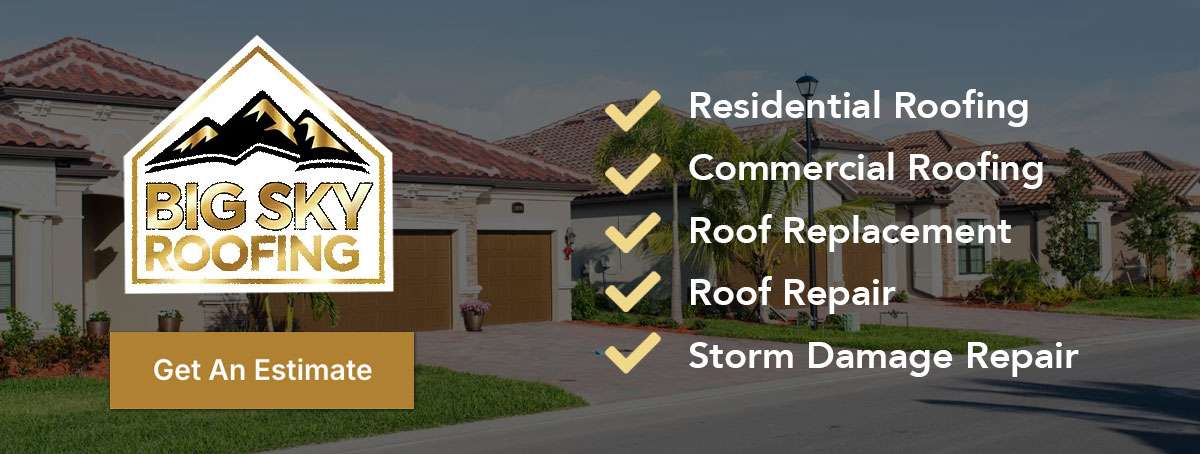
Another indicator of local credibility is membership in any local or national roofing contractor associations. Organizations such as the National Roofing Contractors Association (NRCA) set industry standards and provide continued education, which further emphasizes a contractor’s commitment to staying updated with best practices and emerging technologies. Membership in these associations is often seen as proof of a contractor’s dedication to quality and professionalism. Moreover, local recognition, awards, or strong online reviews also serve as practical evidence of a contractor’s standing in the community.
In this context, it is important to clearly understand not just the years of operation but also the impact of the contractor on the local roofing market. For instance, the feedback from local homeowners, property managers, and municipal authorities can provide an external validation of the contractor‘s reputation and reliability. Contractors with a stellar local reputation are more likely to be trusted by suppliers, which could potentially lower material costs without compromising quality.
Experience, combined with strong local standing, is critical when numbered roofing questions form the crux of your selection process. Homeowners should make it a routine to conduct in-person interviews, ask technical questions related to local projects, and even visit current job sites if possible. These steps provide firsthand confirmation of the contractor’s efficiency, safety culture, and adherence to standards. Moreover, a well-established contractor will be transparent about previous challenges and proactive measures taken in similar projects, thereby instilling confidence in their problem-solving capability.
By thoroughly assessing the contractor’s years in operation, client references, handling of customer feedback, and professional memberships, property owners can make informed decisions that favor both quality and reliability. This comprehensive evaluation process minimizes surprises and assures that the contractor is not only equipped to handle regulatory demands but also dedicated to delivering top-notch roofing services. With the experience and local reputation firmly in place, the next logical step is understanding the contractor’s proposed roofing materials and workmanship standards.
Understanding Proposed Roofing Materials and Workmanship Standards From Your Contractor
A critical component in any roofing project is the selection of roofing materials and the assurance that these materials are installed using state-of-the-art techniques. The materials recommended by your roofing contractor must not only match the aesthetic needs of your property but also cater to the specific climatic and structural demands of your locality. For instance, in regions prone to heavy rainfall or hail, materials that are impact-resistant or have enhanced waterproofing features are crucial. Equally important is a detailed explanation of why certain materials are recommended; such explanations demonstrate that the contractor has a technical and practical understanding of roofing services and how they correlate with home improvement goals.
When consulting with your roofing contractor, inquire explicitly: “Which roofing materials does your roofing contractor recommend for my property and climate, and what are the reasons?” The first sentence of this discussion should provide a direct answer—be it asphalt shingles, metal roofing, or modified bitumen—and succinctly detail the benefits such as durability, energy efficiency, and ease of installation. Contractors should be able to explain how modern roofing materials meet the updated 2025 building codes and operate under current environmental standards. For example, metal roofs typically offer longer lifespans and better resistance to extreme weather conditions compared to traditional shingles.
Equally important is understanding the installation techniques that the contractor will employ. These techniques must align with the latest industry standards and local building codes to ensure that the roof not only looks great upon completion but also provides long-term protection and energy efficiency. Questions should include details about the underlayment, the method of fastening, ventilation solutions, and waterproofing measures to protect surrounding landscaping and property during the project. It is equally important to ask how the contractor plans to handle the disposal of old roofing materials and manage site clean-up. These protocols reflect the contractor’s commitment to environmental responsibility and operational efficiency.
Furthermore, a reputable roofing contractor should provide clear guidelines on the expected durability and lifespan of the proposed roofing system. This includes not only warranties on materials and labor but also an explanation of the maintenance requirements necessary to prolong the roof’s life. For instance, a contractor might explain that a particular roofing system has an expected lifespan of 30 years if regular inspections and preventive maintenance are performed. Such details help homeowners plan for future expenses and reinforce the long-term value of the investment.
It is also valuable to discuss any manufacturer certifications or approvals that the roofing materials have received. These endorsements not only confirm the quality of the products but also facilitate smoother processes should warranty issues arise later on. As many contractors partner with specific suppliers like abc roofing supply, they can offer insights into the performance history of those materials based on previous projects throughout the region.
By thoroughly understanding the proposed roofing materials and workmanship standards, homeowners can ensure that every element of their roofing project—from material selection to installation techniques—is executed to the highest quality standard. This deep dive into materials and methods translates to better protection against weather extremes, lower maintenance costs, and enhanced overall home performance. Having clarified the technical aspects of material durability, the next step is to engage with the contractor on the specifics of the roofing project’s scope, timeline, and financial considerations.
Clarifying the Roofing Project’s Scope, Timeline, and Financials With Your Contractor
One of the most important aspects when hiring a roofing contractor is establishing a detailed and comprehensive understanding of the project’s scope, timeline, and associated financial obligations. The dialogue should start with a clear discussion around whether the customer will receive a comprehensive written quote detailing all the costs involved from the roofing contractor. A detailed quote should break down every element of the project—from the cost of materials, labor, permits, and any contingency funds for unexpected issues. This level of transparency protects both parties and helps prevent disputes over unexpected expenses as the project progresses.
The anticipated start date and the projected duration for the roofing installation are also essential details that need to be firmly agreed upon. Delays in starting a roofing project or extending its duration unexpectedly can disrupt daily operations, especially for commercial properties, or expose the property to weather-related damage longer than anticipated. Ensuring that there is a mutually agreed timeline helps facilitate proper planning for every phase of the project, from preparation through to the final inspection. It also instills confidence that the contractor is not only experienced but also capable of managing time effectively.
Furthermore, a discussion about payment terms and schedules is necessary. Homeowners should understand how much is due at each stage of the project and what payment methods are accepted. Payment schedules often include an initial deposit, mid-project progress payments, and a final payment upon completion and satisfactory inspection of the work. Such clarity helps manage the financial aspects of the project and also acts as a built-in check, ensuring that the contractor remains incentivized to complete the work to specification. Clear contractual terms related to payment also protect homeowners from potential overcharges or incomplete work.
Unexpected issues and changes to the project scope are almost inevitable in any construction endeavor. As such, it is important to ask, “How does your roofing company manage unexpected issues or necessary changes to the project scope?” An experienced contractor should have a structured process for handling such changes, including written change orders that outline additional costs and revised timelines. This process not only safeguards the homeowner’s interests but also ensures that any adjustments are handled professionally, based on mutually agreed principles and industry best practices.
Another critical point of discussion is whether the roofing contractor will secure all necessary permits for the project. Roof replacement and repair often require permits from local authorities to ensure that the work adheres to current safety and building standards. A contractor who takes responsibility for acquiring these permits demonstrates an additional layer of professionalism and commitment to the legal and regulatory requirements of the project.
In summary, clarifying the scope, timeline, and financials with your contractor is crucial for a successful roofing project. A comprehensive written quote, clearly defined project milestones, an agreed-upon payment schedule, and a robust system for managing unexpected changes are all markers of a contractor who is willing to put the customer’s interests first. With these discussions well documented in the contract, homeowners can proceed with confidence knowing that their roofing project—from start to finish—will be transparent and efficiently managed. The next step is to delve into the contractor’s warranty conditions and post-installation commitments.
Inquiring About Your Roofing Contractor’s Warranty and Post-Installation Commitments
When investing in a significant roofing project, understanding the warranty and post-installation commitments offered by your contractor is paramount. A robust warranty not only demonstrates confidence in the quality of materials and workmanship but also provides long-term protection against future issues. The roofing contractor should clearly articulate what types of warranties are available on both the materials and the labor provided. Typically, warranties can range from material-specific guarantees provided by manufacturers to comprehensive workmanship warranties that cover installation flaws.
One of the first questions to ask is, “What types of warranties does your roofing company offer on materials and labor for 2025?” The contractor should provide immediate assurance by outlining policies that cover defects, installation errors, and unforeseen damages. Importantly, the warranty should detail the duration, usually expressed in years, and any conditions or maintenance prerequisites necessary to keep the warranty valid. For instance, some warranties require periodic maintenance inspections and prompt repairs to prevent minor issues from escalating into larger, more expensive problems.
Another critical area is understanding who is responsible for handling warranty claims and the process for initiating them. In the event of a roofing problem, a clearly defined process for warranty claims can mean the difference between a quick remedy and a prolonged hassle. Homeowners should ask, “Who is the responsible party for warranty claims and how is that process initiated?” An effective warranty process will usually involve on-site inspections, prompt reporting, and an established timeline for addressing the issue. A contractor who offers an accessible and friendly warranty claim process not only demonstrates accountability but also builds trust with clients.
Post-installation commitments extend beyond the initial warranty period and encompass ongoing inspection or maintenance services provided by the roofing contractor. It is common for reputable contractors to offer annual or bi-annual inspections, which help in identifying potential issues before they develop into costly repairs. Asking if the contractor provides any post-installation inspection or maintenance services is essential, especially when considering the longevity and performance of the roofing system. Regular maintenance can extend the life of the roof, optimize energy efficiency, and ensure that any problems are caught early.
Additionally, a good workmanship warranty protects the homeowner by clearly defining what constitutes acceptable performance and how any deficiencies will be rectified. This type of warranty should protect not only the materials but also the quality of the installation process and the overall durability of the roof. Knowing that a roofing contractor stands by their work and will address any issues that fall within the warranty period offers homeowners significant peace of mind.
Understanding the details of the warranty along with post-installation commitments is key to making an informed decision. With a well-structured warranty and after-service support, homeowners can safeguard their investment and ensure that any future issues will be resolved efficiently. This level of commitment is indicative of a contractor who is confident in their ability to deliver long-term value and quality roofing services. With warranty and post-installation support clearly established, the final area to evaluate is the contractor’s communication practices and safety protocols.
Evaluating Communication Practices and Safety Protocols of a Roofing Contractor
Efficient communication and stringent safety protocols are the pillars that support a successful roofing project. Knowing who your primary point of contact is throughout the project can greatly streamline coordination and reduce misunderstandings. Homeowners should ask, “Who will be my primary contact person at the roofing company throughout the project?” A consistent point person ensures that all questions, updates, and concerns are managed by someone who is fully versed in the project’s details and client expectations.
Safety on the job site is non-negotiable, especially in the roofing industry where working at heights and on sometimes unstable surfaces heightens the risk of serious injury. In this regard, potential clients must inquire, “What safety measures and training does your roofing contractor team adhere to on site?” The contractor should be able to provide detailed information regarding personal protective equipment (PPE), fall protection systems, regular safety training, and emergency procedures. These protocols are critical not only to protect the workers but also to minimize potential hazards for homeowners and property occupants. A contractor who adheres to OSHA guidelines and conducts regular safety drills is likely to maintain a safer and more productive work environment.
Communication of progress, delays, or any changes to the project is equally important. Questions such as, “How will the roofing company communicate updates, delays, or changes during the project?” should yield a clear explanation regarding the contractor’s preferred methods of keeping clients informed. Whether via email, phone call, or in-person meetings, consistent and transparent communication channels are indicative of a professional roofing company that values client satisfaction. Regular updates not only keep the project on track but also provide reassurance that any unexpected issues are immediately being addressed.
Another critical factor to consider is whether the roofing contractor uses subcontractors, and if so, whether these subcontractors are also insured and licensed. Asking, “Does the roofing contractor use subcontractors, and if so, are they also insured and licensed?” is vital because the quality and safety of the project can depend heavily on the capabilities and compliance records of all personnel involved. Using unverified subcontractors could potentially introduce unanticipated risks or compromise the standard of workmanship, impacting both the safety and longevity of the roof.
Furthermore, the contractor should clearly outline the procedures in place if unforeseen structural issues are discovered during the roofing project. Roofing projects sometimes reveal hidden problems such as water damage, rot, or outdated electrical wiring. In such scenarios, knowing, “What procedures are in place if unforeseen structural issues are found by the roofing contractor?” is essential for quick and efficient resolution. A reputable contractor will have a contingency plan that includes timely inspections, revised quotes, and a clear method for obtaining any necessary additional permits or approvals without causing significant delays.
Emphasizing communication practices and safety protocols reassures homeowners that the roofing project will be managed with precision and attention to detail, ensuring both the quality of work and the safety of everyone on board. Strong communication methods lead to fewer miscommunications and better responsiveness, while robust safety measures protect against accidents and ensure compliance with industry standards. Together, these factors establish the reliability and professionalism of the roofing contractor, ensuring that the project is executed smoothly from start to finish.
Frequently Asked Questions
Q: How do I verify that a roofing contractor is fully licensed for my area? A: To verify licensing, ask the contractor to provide a current copy of their state-issued license and check with your local building authority or regulatory body. This ensures they meet local standards and have a documented history of compliance.
Q: What should be included in a comprehensive roofing project quote? A: A comprehensive quote should include a detailed cost breakdown for materials, labor, permits, site preparation, clean-up, and any contingency funds. It should also clearly state start dates, project duration, and payment terms to avoid any ambiguity.
Q: How can I ensure that unexpected issues during the project are handled properly? A: Ensure that the contract includes a clear change order process for any unforeseen issues. This process should outline how additional costs and revised timelines will be managed, alongside assigning a clear communication protocol for addressing problems.
Q: What is the importance of warranty coverage for roofing projects? A: Warranty coverage provides long-term protection against defects in materials and workmanship. It assures homeowners that the contractor stands by their work and offers a structured process for handling any issues that arise post-installation.
Q: Why is it necessary to ask about safety protocols and communication practices? A: Safety protocols ensure that the roofing work is carried out in a secure environment, minimizing risks of accidents. Effective communication practices, on the other hand, keep you informed about project progress, potential delays, and any unforeseen adjustments, ensuring transparency throughout the project.
Q: Should I be concerned if a roofing contractor uses subcontractors? A: Yes, always verify that any subcontractors used are also licensed and insured. This verification protects you from potential liabilities and ensures that all parties involved adhere to the same high standards of workmanship and safety.
Final Thoughts
Selecting the right roofing contractor is a complex decision that requires careful evaluation of their credentials, experience, material quality, and safety protocols. By asking the right questions and thoroughly reviewing their documentation, homeowners can ensure that their roofing project will be executed to the highest standards. Clear communication and comprehensive warranties further enhance peace of mind and the overall success of the project. In an ever-changing market shaped by emerging technologies and stricter building codes, taking the time to vet your contractor is a vital investment in your property’s future.

